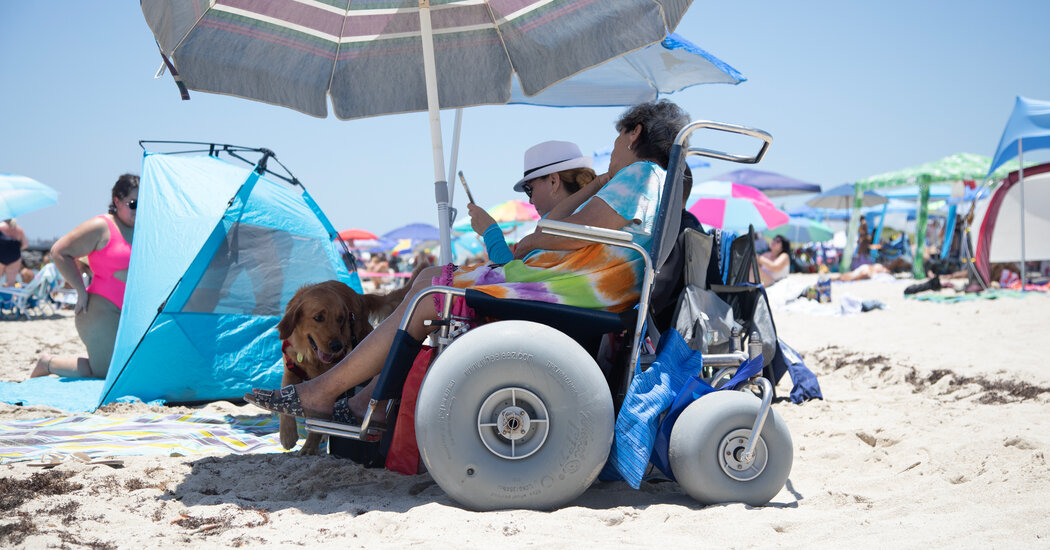For Linda Green James, getting onto the beach is usually top of mind when she’s planning a summer getaway with her daughter Suzi Osborne, 47, who uses a wheelchair because of a traumatic brain injury.
But when the two stay at a friend’s condo in Pompano Beach, Fla., they usually resign themselves to hanging out around the pool.
During their visit in January, Ms. James was thrilled to spy a beach wheelchair, a device with chunky, oversize tires that can roll over sand and uneven terrain, that they could borrow from a beach equipment shack. “We had been going to this condo for years, but Suzi had never been able to go to the beach, just to the pool,” said Ms. James, 75, a retired college professor from Brownsville, Tenn.
“It’s not much fun to go to the beach when one of your family members can’t join you,” she said. “With the chair, family time is just that.”
A ‘huge business opportunity’
Beach wheelchairs are becoming more common at America’s shorelines, thanks to laws, government initiatives and growing demand by disabled travelers.
The wheelchairs available at many public beaches either for rent or at no charge have PVC or steel frames and balloon-like tires. A three-wheeled version with a reclined frame lets disabled beachgoers float in the surf.
Most of the chairs need someone to push, but some models are motorized, offering more independence. Typically, visitors may borrow the chairs on a first-come, first-served basis, at beaches or rental shops. Some beaches also accept reservations.
For millions of people like Ms. James and Ms. Osborne, accessibility is central to vacation planning. About 2 percent of the U.S. population uses a manual wheelchair or a motorized mobility aid, according to the 2019 American Housing Survey by the U.S. Census. Disabled travelers account for $58.2 billion of the $1.2 trillion U.S. travel market — nearly 5 percent — and they travel about the same amount as people who don’t have disabilities, MMGY Global, a tourism marketing company, said in a 2022 report.
“Not only is inclusivity the right thing to do from an ethical standpoint, it’s also a huge business opportunity,” said Chris Davidson, an executive vice president of MMGY Travel Intelligence, the company’s travel-market research division.
The Americans With Disabilities Act requires all state and local governments “to give people with disabilities an equal opportunity to benefit from all of their programs, services and activities.”…
Click Here to Read the Full Original Article at NYT > Travel…
